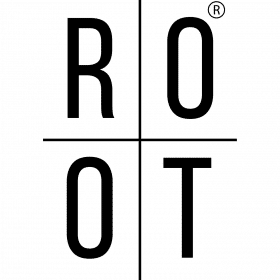Genetic Testing for Vitamin Deficiency
Vitamins are an essential part of human health. These vital nutrients keep our body functioning and help us to avoid chronic health conditions. When we’re deficient in certain vitamins, we can feel more tired, get sick more often, feel weak, experience issues with memory and concentration, and develop a wide range of other health issues.
With genetic testing, we can begin to understand how genetic variations can play a role in how we process vitamins and minerals and figure out what vitamins we might be lacking.
Most Common Types of Vitamin Deficiencies
There are many different types of vitamin deficiencies that can affect our health. Some of the common ones include:
Vitamin D Deficiency
A vitamin D deficiency happens when your body doesn’t have enough vitamin D. This could be because you’re not getting enough of it from food, supplements, or sunlight. Vitamin D deficiencies also tend to happen as we get older. It’s more common in people 65 and older.
Because vitamin D is important for strengthening bones and muscles, having a deficiency in this essential nutrient can lead to bone loss, muscle weakness, and a higher risk of breaks or fractures. Vitamin D can also help protect against chronic diseases like cancer and diabetes.
Iron Deficiency
Another very common vitamin deficiency is iron. When your body doesn’t have enough iron, the most common issue is anemia. If you’re anemic because of an iron deficiency, you’ll have less healthy red blood cells, which are necessary for carrying oxygen to the blood. Therefore, you might experience tiredness or shortness of breath because of the lack of oxygen. You might also have difficulty thinking and concentrating, as well as a weakened immune system.
Vitamin B6 and B12 Deficiency
Deficiencies in essential vitamins and minerals like B vitamins can leave you feeling tired and weak, nauseous or with an upset stomach, difficulty remembering things or focusing, and can even affect your mental health. Vitamin B deficiency happens when you don’t eat enough foods that contain B vitamins or if you have a health condition or genetic predisposition that doesn’t allow you to process these vitamins appropriately.
Since many B vitamins are water-soluble – meaning they dissolve in water – they cannot be stored or created by the body and must be obtained from the foods we eat or through supplements. Foods like red meats, fish, eggs, and dairy are excellent sources of vitamin B12.
Addressing these common vitamin deficiencies can help you feel better, avoid sickness, boost energy levels, and improve optimal health.
How Can a Nutrition DNA Test Help Treat People With a Vitamin Deficiency?
A nutrition DNA test is pretty straightforward. It can help you treat any vitamin deficiencies by identifying what vitamins you might be lacking and also any genetic variants or predispositions that might be present that could lead to deficiencies.
Getting a nutrition DNA test done is simple. All you need to do is give a saliva DNA sample. After the sample is taken, it is sent to a lab to look for any specific genes or genetic markers that might show how your body responds to and uses nutrients.
Once the test results are completed, you’ll be given a detailed report that can give you information about your genetic traits that could be related to your nutritional needs. This type of DNA test can also provide you with information about possible food sensitives like celiac disease or lactose intolerance that can help you make food and lifestyle choices to stay in good health.
Important Micronutrients Required to Build a Healthy Body
Micronutrients like vitamins and minerals help to keep our bodies feeling good and functioning optimally. It’s important to think about those micronutrients that can help you maintain your health in order to feel energized and live a healthy life. These are some of those essential nutrients:
- Group of Vitamin B: This group includes Thiamine, Riboflavin, Pyridoxine, Niacin, Cyanocobalamin, Folic acid, and Biotin. As building blocks for your body’s health, these vitamins play a crucial role in keeping your brain functioning, boosting metabolism, preventing infections, and giving your body energy.
- Vitamin D: Good vitamin D metabolism and levels can help your body absorb minerals like calcium and phosphorus that are necessary for building bone health.
- Omega 3 fatty acids: These healthy fats are needed to improve and maintain good cardiovascular health. Omega 3s can help lower blood pressure, reduce joint inflammation, and lower triglycerides (unhealthy fat).
- Antioxidants: These substances help to protect our cells from molecules that can cause damage, called free radicals. This protection can prevent us from developing chronic diseases like cancer, heart disease, or other conditions. Antioxidants also help reduce inflammation and improve our immune system.
Why are Tests for Vitamin Deficiencies Important?
Testing for vitamin deficiencies is key to helping us keep our bodies healthy and functioning well. Vitamins are critical in maintaining various aspects of our health, from our heart to our skin health. Because of that, through vitamin deficiency tests, understanding how our individual genetic factors impact our body’s ability to absorb and use these vitamins can help us make the best choices for our wellness.
By seeing and understanding the genetic data provided by a simple saliva sample, we can understand how our bodies metabolize key nutrients, how these deficiencies might negatively affect our health, and identify any other food issues we may be unaware of.
What Information is Derived from This Type of Testing?
As we mentioned previously, the information you learn from this type of testing has to do with how specific variations in your genes might be related to how your body absorbs and uses certain vitamins and minerals. Analyzing the genetic data taken from your DNA sample can show you the genetic variations you might have and give you an idea of how your body handles essential nutrients, where you might be lacking, and ways you can adjust your lifestyle to improve your health.
Conclusion
Understanding how your body responds to and uses essential vitamins and minerals can help you build and maintain a healthy lifestyle and reduce the possibility of developing chronic diseases like heart disease, diabetes, and even cancer. Through a nutrition DNA test, you can learn about genetic variants that might increase your likelihood of being vitamin deficient and move you toward improving your overall health.




 What is ROOT Prime and what are its Benefits?
What is ROOT Prime and what are its Benefits?